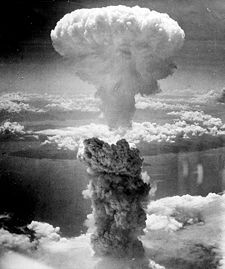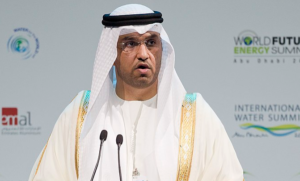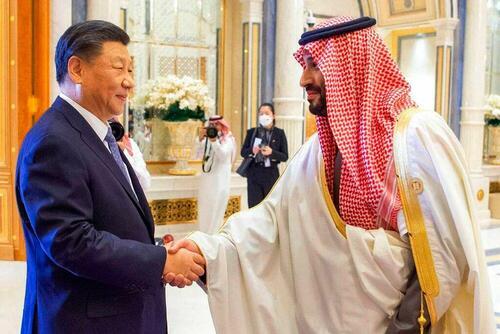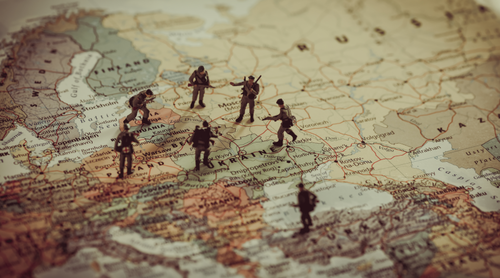Steve Bull's Blog, page 138
January 19, 2023
Sulzberger: Disinformation is the “Most Existential Problem” Facing the Planet Today
 There has been much coverage over the resurfacing of former CNN host Brian Stelter as the host for a panel at the World Economic Forum on alleged disinformation and “hate speech.” Stelter previously called for censorship under a “harm reduction model” and led a panel at a conference where Democrats discussed how to shape the news. He was confronted over his own dissemination for false stories targeting Republicans on CNN. Yet, I was most struck by a statement from New York Times publisher A.G. Sulzberger who described “disinformation” as the “most existential” problem the world is facing today. Sulzberger insisted that disinformation is the reason why there is a loss of “trust” today. He ignores his own history in eroding that trust in the media through flagrantly biased decisions at the New York Times.
There has been much coverage over the resurfacing of former CNN host Brian Stelter as the host for a panel at the World Economic Forum on alleged disinformation and “hate speech.” Stelter previously called for censorship under a “harm reduction model” and led a panel at a conference where Democrats discussed how to shape the news. He was confronted over his own dissemination for false stories targeting Republicans on CNN. Yet, I was most struck by a statement from New York Times publisher A.G. Sulzberger who described “disinformation” as the “most existential” problem the world is facing today. Sulzberger insisted that disinformation is the reason why there is a loss of “trust” today. He ignores his own history in eroding that trust in the media through flagrantly biased decisions at the New York Times.
Former NYT editor Jill Abramson also slammed the participation of Sulzberger and the New York Times at Davos, denouncing it as a “corrupt circle-jerk” between media and business. She said that “the coverage was a sweetener to flatter the CEOs by seeing their names in the NYT.”
The panel was titled, “Clear & Present Danger of Disinformation” included panelists: New York Times publisher A.G. Sulzberger, Vice-President of the European Commission Vera Jourová, CEO of Internews Jeanne Bourgault, and Rep. Seth Moulton, D-Mass. The entire conference was notable in its omission of free speech advocates while inviting long advocates for censorship like Stelter.
Stelter asked his panel, “How does this discussion of disinformation relate to everything else happening today in Davos?”
Sulzberger responded:
“Well, first, thanks for having me is as part of this conversation. As you can imagine, this is something I really care deeply about. So, I think if you look at this question of disinformation, I think it maps basically to every other major challenge that we are grappling with as a society, and particularly the most existential among them…
…click on the above link to read the rest…
‘Fragmented world’ sleepwalks into World War III

The self-appointed Davos “elites” are afraid. So afraid. At this week’s World Economic Forum meetings, mastermind Klaus Schwab – displaying his trademark Bond villain act – carped over and over again about a categorical imperative: we need “Cooperation in a Fragmented World”.
While his diagnosis of “the most critical fragmentation” the world is now mired in is predictably somber, Herr Schwab maintains that “the spirit of Davos is positive” and in the end we may all live happily in a “green sustainable economy.”
What Davos has been good at this week is showering public opinion with new mantras. There’s “The New System” which, considering the abject failure of the much ballyhooed Great Reset, now looks like a matter of hastily updating the current – rattled – operating system.
Davos needs new hardware, new programming skills, even a new virus. Yet for the moment all that’s available is a “polycrisis”: or, in Davos speak, a “cluster of related global risks with compounding effects.”
In plain English: a perfect storm.
Insufferable bores from that Divide and Rule island in northern Europe have just found out that “geopolitics”, alas, never really entered the tawdry “end of history” tunnel: much to their amazement it’s now centered – again – across the Heartland, as it’s been for most of recorded history.
They complain about “threatening” geopolitics, which is code for Russia-China, with Iran attached.
But the icing on the Alpine cake is arrogance/stupidity actually giving away the game: the City of London and its vassals are livid because the “world Davos made” is fast collapsing.
Davos did not “make” any world apart from its own simulacrum.
Davos never got anything right, because these “elites” were always busy eulogizing the Empire of Chaos and its lethal “adventures” across the Global South.
…click on the above link to read the rest…
January 18, 2023
Poszar Was Right: Saudis Confirm Non-Dollar Oil Trade Plans In Davos
Earlier this month, former NY Fed repo guru Zoltan Pozsar wrote one of his most important reports of 2022, in which he described how Putin could unleash hell on the Western financial system by demanding that instead of dollars, Russian oil exporters are paid in gold, effectively pegging oil to gold and launching Petrogold.
Then, China’s President Xi visit with Saudi and GCC leaders marked the birth of the petroyuan and a leap in China’s growing encumbrance of OPEC+’s oil and gas reserves: that’s because with the China-GCC Summit, “China can now claim to have built a ‘special relationship’ not only with the ‘+’ sign in OPEC+ (Russia), but with Iran and all of OPEC+.”
At the time, Zoltan urged the reader to think of the timing of this statement in a diplomatic sense:
“President Xi communicated his message on “renminbi invoicing” not during the first day of his visit – when he met only the Saudi leadership – but during the second day of his visit – when he met the leadership of all the GCC countries – to signal the following:
GCC oil flowing East + renminbi invoicing = the dawn of the petroyuan.“
And now, according to Bloomberg, Saudi Arabia is open to discussions about trade in currencies other than the US dollar, according to the kingdom’s finance minister.
“There are no issues with discussing how we settle our trade arrangements, whether it is in the US dollar, whether it is the euro, whether it is the Saudi riyal,” Mohammed Al-Jadaan told Bloomberg TV on Tuesday in an interview in Davos.
“I don’t think we are waving away or ruling out any discussion that will help improve the trade around the world,” Al-Jadaan said.
And echoing Poszar’s comments above, Al-Jadaan appeared to confirm The Kingdom’s goal seeking to strengthen its relationship with crucial trade partners, most notably China:
…click on the above link to read the rest…
Dusk of a Global Empire
The slow passing of a global hegemon, the Empire of all empires, made me ponder how it will pass to the pages of history books. Apparently, its ruling elite has chosen a strategy called spite: knowingly (or unknowingly) hurting their own self interest, hoping that their enemies will be hurt more. Sanctions come to mind here as a prime example, but spending more than half of one’s discretionary budget on militarism could be seen as an even more spectacular way of running down services, infrastructure, security and resilience at home, while overcommitting oneself abroad — all at the same time. One way or the other, absent of a decisive victory rewarded with a renewed flow of cheap resources, both of these strategies will lead to increasing isolation and deprivation in the coming decades, then… well, something comparable to the fall of Rome. But let’s just not get ahead of ourselves yet.
 Photo by Simon Berger on Unsplash
Photo by Simon Berger on UnsplashFirst let’s define what is an empire. According to Britannica, it is “a group of countries or regions that are controlled by one ruler or one government”. Simple as that. In order to control a territory or state however, obviously you would need to apply some sort of force, be it economic, financial or military in nature, to ‘convince’ your ‘allies and partners’ that it is in their best interest to comply with your will. (Why, how else would you ask a sovereign country to commit economic suicide for your sole benefit…?) According to the late Anthony Stafford Beer, a British theorist, consultant and professor at the Manchester Business School:
“The purpose of a system is what it does. There is after all, no point in claiming that the purpose of a system is to do what it constantly fails to do.”
…click on the above link to read the rest…
Is New Zealand A Beta Test For Western Governments Micromanaging The Populace?
In the wake of the covid pandemic lockdowns and mandates, many western nations and states in the US witnessed a new eye opening level of government intrusion into the daily lives of citizens. Some, however, dealt with worse scenarios than others.
New Zealand in particular has popped up time and time again over the past couple of years with some of the most draconian restrictions on the public, and sadly the trend has not stopped just because the pandemic lockdowns stopped. The island nation seems to be intent on setting the standard for authoritarian policies and government micromanagement, and a series of recent laws are driving home the reality that they do not intend to relent.
Flashback: In 2018, New Zealand banned all offshore oil drilling exploration in the name of instituting a “carbon neutral future”, meaning tight energy restrictions are forthcoming in NZ as the decade progresses.
In 2019, NZ banned all semi-automatic weapons after the Christchurch mosque shootings, punishing millions of law abiding citizens for the crimes of one man. Video evidence of the Christchurch shootings is suspiciously illegal in NZ, and anyone caught viewing or downloading the event can be prosecuted. The gun bans were enforced just in time for the pandemic lockdowns.
In 2020, the government introduced internet censorship legislation which would give them the power to selectively filter “dangerous content.” Most of the provisions were ultimately scrapped after a public backlash, but future censorship remains a priority for the government.
In 2021, New Zealand Prime Minister and associate of the World Economic Forum, Jacinda Ardern, openly admitted to constructing a two tier society in which the vaccinated enjoy normal access to the economy, travel and social interaction while the unvaccinated would be deliberately choked with restrictions until they “chose” to comply and accept the mRNA jab.
…click on the above link to read the rest…
The Renewable Energy Problem That No One Talks About
 Windmills and solar panels are shown in Kahuku, Hawaii, on Aug. 22, 2022. (AP Photo/Caleb Jones)The Renewable Energy Problem That No One Talks About
Windmills and solar panels are shown in Kahuku, Hawaii, on Aug. 22, 2022. (AP Photo/Caleb Jones)The Renewable Energy Problem That No One Talks AboutAn obvious barrier to adopting wind and solar power for electricity supply is their intermittency—when the wind isn’t blowing, and the sun isn’t shining, substitute sources are required. This issue is given much attention by conservative media, as it should.
Yet one of the less well-known roadblocks for these renewable technologies is frequency control, even though it becomes a critical concern much sooner.
Since the 1890s, electricity networks and devices all around the globe have used alternating current (AC) systems, which means that the flow of electricity in the system is repeatedly changing direction.
In Australia, it alternates 50 times a second, that is, at a frequency of 50 Hertz (in the USA, it is 60 Hertz).
Supplying electricity at a consistent frequency is very important because appliances and electronics on the network are designed for a specific frequency/voltage input. Therefore, they can be damaged by the wrong electricity supply.
As a rule, networks would rather supply no electricity than bad electricity. Automated controls through the electricity system will disconnect the supply if the frequency or voltage is “off-spec.”
 A technician monitors electricity levels in front of a giant screen showing the eastern German electricity transmission grid in the control centre at Neuenhagen bei Berlin, Germany, on Dec. 17, 2015. (Sean Gallup/Getty Images)
A technician monitors electricity levels in front of a giant screen showing the eastern German electricity transmission grid in the control centre at Neuenhagen bei Berlin, Germany, on Dec. 17, 2015. (Sean Gallup/Getty Images)South Australians will not soon forget when this happened to the entire state network in 2016. The state-wide blackout started late in the afternoon during some poor weather conditions, and thousands of people had to drive out of the city without any streetlights or traffic signals.
There were a range of contributing causes, including gusty winds taking down some transmission lines and a lightning strike on a power station.
…click on the above link to read the rest…
January 17, 2023
Global outrage as oil executive named head of UN climate talks
 C: Masdar Corporate
C: Masdar CorporateThere is universal condemnation today on the breaking news that the United Arab Emirates has appointed a veteran oil industry insider to preside over the upcoming UN climate talks that will happen later this year in Dubai.
The news this morning that Sultan al-Jaber, the CEO of the Abu Dhabi National Oil, will be the new chair of the climate talks is a new low for the UN climate process.
The COP’s credibility was already battered by recent events in Egypt, with accusations of greenwashing, undue corporate influence of fossil fuel lobbyists, and attacks and intimidation of climate activists by the host nation.
The announcement ironically came the day after the journal Nature published an editorial saying that: “UN climate conferences are too beholden to oil and gas interests. Like-minded nations must come together to keep climate hopes alive.”
But the appointment of Al-Jaber, who is described as a “veteran technocrat” seems to be the final straw for many climate activists and experts.
The polluting oil-pumping fox has literally taken over the hen house. As points out this morning: Al-Jaber’s firm “pumps some 4 million barrels of crude a day and hopes to expand to 5 million daily, generating more of the heat-trapping carbon dioxide that the UN annual climate negotiations aim to limit.”
Tasneem Essop, the executive director of Climate Action Network International, told the Guardian that if Al-Jaber, “does not step down as CEO, it will be tantamount to a full-scale capture of the UN climate talks by a petrostate national oil company and its associated fossil fuel lobbyists.”
She added: “As civil society we [will] demand that Al Jaber does the right thing and either stand aside or step down.”
…click on the above link to read the rest…
Japan Is Perhaps the Most Important Risk in the World
Speculation is mounting that the Bank of Japan is losing control of the bond market. Jim Grant, editor of «Grant’s Interest Rate Observer», believes this could trigger a shock to the global financial system. He also explains why he expects further surges in inflation and why gold should be part of your portfolio.
The news caught markets off guard: On December 20th, the Bank of Japan surprisingly extended the target range for the yield on ten-year government bonds to plus/minus 0.5%. A move that not a single economist had expected.
This week, the Bank of Japan could announce a major policy shift amid rising government bond yields and a strengthening yen. Although barely a month has passed since the BoJ’s last meeting, the bond market is already testing the new upper limit of the yield curve control regime.
«To us, Japanese interest rate policy resembles the Berlin Wall of the late Cold War era, a stale anachronism that must sooner or later fall,» says Jim Grant. For the editor of the iconic investment bulletin «Grants’ Interest Rate Observer,» recent developments in Japan pose an underestimated risk to global financial markets. Not least because virtually no one is talking about it.
In an in-depth interview with The Market NZZ, which has been slightly edited for clarity, Mr. Grant explains what it means for financial markets if the Bank of Japan is forced to scrap its yield curve control policy. But first, he says why he doesn’t believe inflation will end soon, why bonds may be at the start of a long bear market, and why he believes gold is the best choice as a store of value.
 «If the past is prologue and if the great bond bull market is over, then on form, we are looking at what could be a very prolonged and perhaps gradual move higher in interest rates»: Jim Grant.
«If the past is prologue and if the great bond bull market is over, then on form, we are looking at what could be a very prolonged and perhaps gradual move higher in interest rates»: Jim Grant.…click on the above link to read the rest…
Jason Hickel: Degrowth and Ecosocialism
ZH Geopolitical Week Ahead: Fears At Davos Of Globalization ‘Under Siege’ While Kiev, Moscow Agree ‘Russia Is Fighting NATO’
A weekly round-up of geopolitical flashpoint and energy news we’re keeping our eyes on, and trends impacting global markets, which will later be accessible for Premium members and above…
Finally the Ukrainian and Russian governments agree on something… but it doesn’t bode well for the prospect of WWIII. Days ago Ukraine’s defense minister called his country a de facto NATO member in a television interview. Well over a week has passed since the interview was published and even offered in English translation (which was done by Russian state media). And yet scant attention was paid in Western media – at least not on the level the remarks deserved. Here’s what DM Oleksii Reznikov said…
“At the NATO Summit in Madrid [in June 2022]…it was clearly delineated that over the coming decade, the main threat to the alliance would be the Russian Federation. Today Ukraine is eliminating this threat. We are carrying out NATO’s mission today. They aren’t shedding their blood. We’re shedding ours. That’s why they’re required to supply us with weapons.”
In follow-up to the rare, ultra-blunt assessment from a top Kiev official, independent geopolitical analyst Aaron Mate teased out the implications, particularly at a moment both sides have committed to a fight to the finish over Bakhmut. Matte writes:
Predictably, Ukrainian soldiers that “bear the consequences of war” are facing heavy losses. Speaking to Newsweek, retired U.S. Marine Corps Colonel Andrew Milburn, who has trained and led Ukrainian forces for the private mercenary firm Mozart Group, reports that in the battle for Bakhmut, Ukraine has been “taking extraordinarily high casualties. The numbers you are reading in the media about 70 percent and above casualties being routine are not exaggerated.”
…click on the above link to read the rest…






